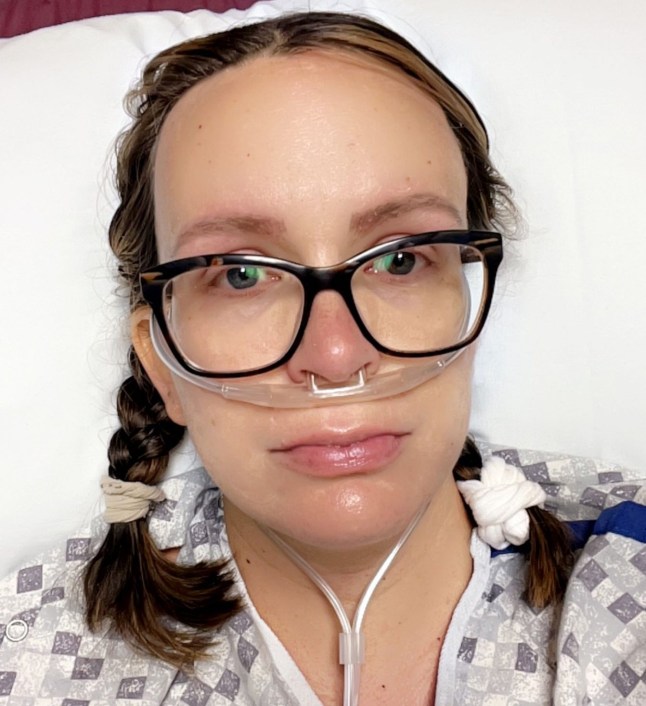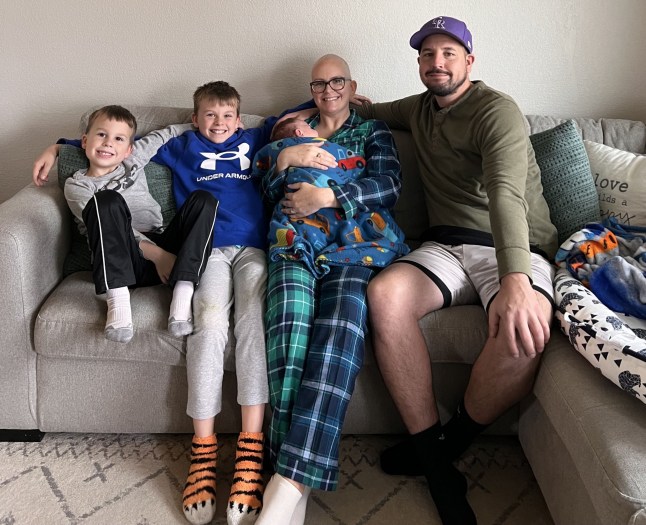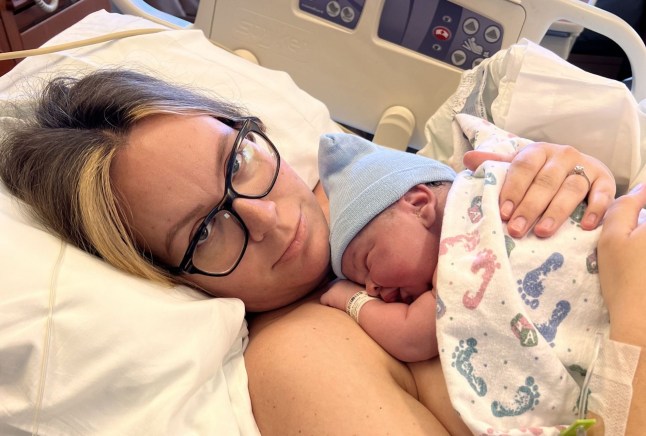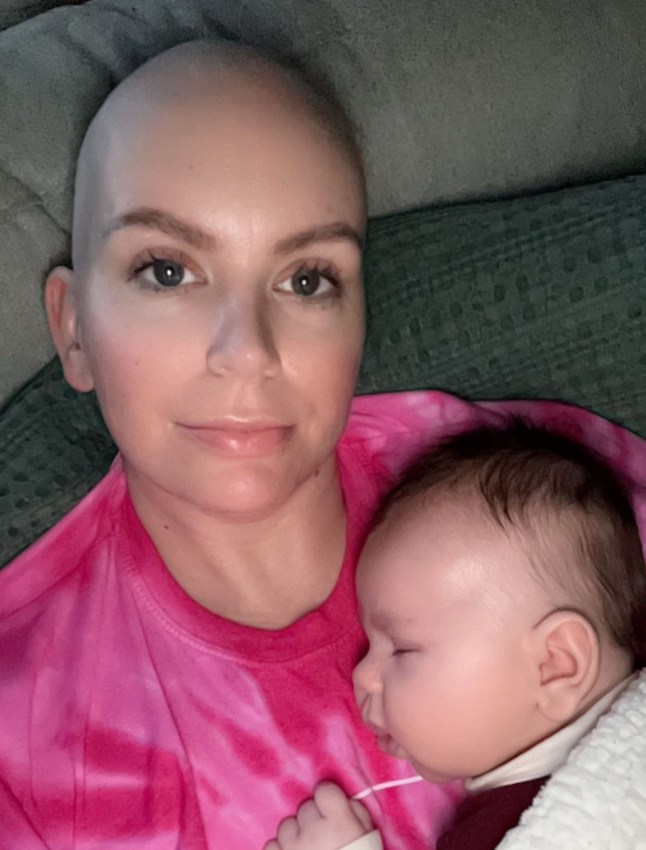When Danika Hilmer arrived at the hospital to give birth, she thought she knew what to expect.
With two other children, she knew the drill: have a baby, spend a few hours in hospital, then head home with her newborn son swaddled in her arms.
But things took a turn after little Banks Mohwinkle was born, as Danika started haemorrhaging blood – and doctors couldn’t stop it.
Tests were ordered and within 30 minutes the mum was being given ‘devastating’ news; it turned out she had acute myeloid leukaemia, a rare and aggressive form of cancer.
The diagnosis came as a huge ‘shock’ to the stay-at-home mum, especially as she hadn’t experienced any unusual symptoms during her pregnancy, aside from sciatica.
Instead of taking her baby home to start settling into family life, a ‘shocked’ Danika was whisked off to another hospital to start chemotherapy treatment immediately.

Danika, from Cedar Rapids in the US, remained in hospital for a month, between October and November 2022 and describes that time as ‘devastating’ and ‘very depressing’.
‘My baby was taken out of my arms and I was rushed away to a different hospital where I had to start chemotherapy right away,’ she recalls.
‘It was devastating. It was very much a shock.
‘I kept thinking that when I got to the other hospital, they would tell me it was wrong, but when I got there they confirmed that it was true [and] I spent the next month in hospital going through chemo.
‘It was very depressing.’

But the most challenging part for Danika was the lack of time she was able to spend with her family throughout it all.
‘I was hormonal because I’d just had a baby that I could not be with and was only allowed a couple of visits from my newborn as well as my other two children,’ she recalls.
‘It was isolating. I was not doing very well mentally at that time because it was all so much.’
After four weeks, Danika was finally released from hospital, but she wasn’t out of the woods just yet. She had to undergo two further rounds of chemotherapy and a stem cell transplant before doctors confirmed she was in remission in January 2023.
‘My stem cell transplant on January 25, 2023 was successful. As of that day I’ve been in remission,’ the mum says.
‘Once home, it was almost a year-long recovery before I had my strength and energy back and I felt like myself again.’
As traumatic as the whole experience was, Danika says she’s grateful to have given birth when she did as she fears what might have happened if the blood test had been carried out any later.
‘This pregnancy absolutely saved my life,’ she states.
‘It’s a fast and aggressive form of cancer so if I didn’t give birth on that day then it could have progressed more and more. It’s very possible that it could have been too late by the time they found it.’
The mum adds: ‘I also learned that when they were trying to get my bleeding to stop, they also considered doing an emergency hysterectomy.
‘They decided not to do that and I later on found out that if they would have done that then I may have not survived the surgery because my platelet counts were so low that I would not have been able to stop bleeding.
‘I am very thankful that the doctor decided to do blood work instead of that surgery because I probably wouldn’t be here today.’
What is acute myleoid leukemia (AML)?
Acute myleoid leukemia is a rare type of cancer that around 3,100 people in the UK are diagnosed with each year.
According to the NHS, it’s an ‘aggressive cancer’ of the monocyte or granulocyte cells, which come from myleoid stem cells.
Symptoms usually develop over a few weeks and become worse over time. These include feeling tired or weak, looking pale, breathlessness, frequent infections, unusual and frequent bruising or bleeding (such as bleeding gums or nosebleeds) and losing weight without trying to.
It’s not clear what causes AML and in most cases there’s no indentifiable cause, however there are certain things that can ‘increase the risk’ of getting it, such as previous chemotherapy or radiotherapy, smoking and having a blood disorder.
The risk of developing it also increases with age and it’s most common in people over 75.
Chemotherapy is the main treatment, however in some cases a bone marrow or stem cell transplant may also be required.
Do you have a story to share?
Get in touch by emailing MetroLifestyleTeam@Metro.co.uk.


Write Reviews
Leave a Comment
No Comments & Reviews